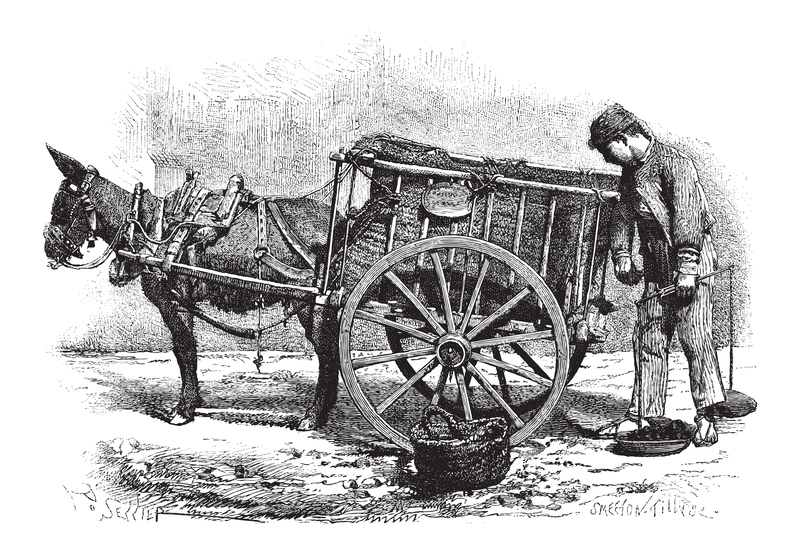Leading the Way to Zero Plastic Waste Solutions
Plastic waste is one of the greatest challenges of our modern world. As single-use plastics and unrecycled materials pile up in landfills and oceans, the call to action grows louder. But, as awareness rises, so does innovation. Across the globe, businesses, governments, and individuals are taking the lead in the journey to achieve zero plastic waste. This comprehensive guide explores the forefront of zero plastic waste solutions, highlights emerging alternatives, and provides actionable steps to participate in this global movement.
Understanding the Plastic Waste Crisis
Plastic pollution has reached alarming levels. Every year, millions of tons of plastic enter our environment, where they do not biodegrade. Instead, they break down into microplastics, contaminating water sources, harming wildlife, and even entering our food chain.
Key Facts About Plastic Waste
- Approximately 8 million tons of plastic end up in the ocean annually.
- Only 9% of plastic waste ever produced has been recycled.
- Single-use plastics account for nearly 50% of all plastic waste.
- Some plastics can take up to 1,000 years to decompose.
The environmental, economic, and health implications are clear: the quest for zero plastic waste is not just a choice but a necessity.

What Does Zero Plastic Waste Mean?
The term "zero plastic waste" refers to a holistic approach to eliminating plastic waste from our society. It's more than just recycling. Zero plastic waste solutions involve:
- Reducing plastic production
- Rethinking product packaging
- Reusing materials
- Replacing plastics with alternative materials
- Recovering plastic before it becomes pollution
Leading the way to zero plastic waste means addressing the entire lifecycle of plastic, from design and production to usage and disposal.
Innovative Solutions Leading the Zero Plastic Waste Movement
The path to zero plastic waste requires inventive, scalable solutions at every stage. Here's how organizations and communities are pioneering plastic-free initiatives:
1. Product Design & Alternative Materials
- Biodegradable Plastics: Derived from plants like corn or sugarcane, these materials break down faster and more safely than fossil-fuel-based plastics.
- Edible Packaging: Innovations in packaging made from seaweed, rice, or even milk protein offer zero-waste alternatives, especially for single-use items.
- Reusable Packaging Systems: Brands are introducing containers that can be returned, cleaned, and reused, replacing disposable options.
2. Circular Economy Approaches
- Closed-Loop Recycling: Companies are engineering products so that materials can be endlessly recycled with minimal quality loss.
- Plastic Take-Back Programs: Major brands and retail chains provide incentives for customers to return used plastics for recycling or repurposing.
3. Policy and Legislation
- Plastic Bans: Dozens of cities and countries have banned single-use plastics, prompting the adoption of alternatives.
- Extended Producer Responsibility (EPR): Regulations require manufacturers to manage the lifecycle of their plastic products, including post-consumer waste.
4. Community Engagement and Education
- Plastic-Free Schools and Workplaces: Institutions are leading by example, eliminating single-use plastics and providing sustainability education.
- Grassroots Cleanup Efforts: Local organizations mobilize volunteers for beach and river cleanup events, making immediate impacts.
Global Leaders in Zero Plastic Waste Solutions
Which countries and companies are setting benchmarks in zero plastic waste?
- Germany: With one of the world's highest recycling rates, thanks to a comprehensive deposit return scheme and strict separation policies.
- Canada: The Ocean Plastics Charter and significant federal investments aim for plastic-free coasts and water bodies by 2030.
- Loop: An international initiative where top brands sell products in reusable containers, collected, cleaned, and refilled for reuse.
- Unilever and Nestle: Pioneering new packaging, reducing virgin plastic use, and investing in circular economy approaches.
These forerunners highlight what's possible with commitment, innovation, and collaboration.
How Businesses Can Embrace Zero Plastic Waste
Companies of all sizes play a pivotal role in reducing plastic pollution. Embracing zero plastic waste strategies can strengthen brand reputation, meet regulatory requirements, and appeal to conscious consumers. Here's how businesses can lead:
Assess and Reduce Plastic Usage
- Conduct a plastic footprint audit to identify where plastics are used, and how to reduce or eliminate them.
- Switch to recyclable, compostable, or reusable materials in product packaging.
- Implement refill stations or bulk purchasing to minimize packaging waste.
Promote Recycling and Reuse
- Design products and packaging with end-of-life recycling in mind.
- Partner with recycling companies or join plastic take-back initiatives.
- Communicate clear recycling instructions to consumers.
Engage Employees and Consumers
- Educate staff on the value of zero plastic waste practices.
- Run awareness campaigns highlighting your company's efforts.
- Offer incentives for customers to return or reuse packaging.
By leading with action, businesses can inspire industry-wide shifts and attract customers who demand greater environmental accountability.
Consumer Power: Actions That Make a Difference
The zero plastic waste movement thrives on everyday decisions. Here's how individuals can contribute:
- Choose alternatives to single-use plastics (cloth bags, glass bottles, metal straws, etc.).
- Support zero-waste brands and businesses that use sustainable materials.
- Advocate and educate within your community, workplace, and online platforms.
- Participate in cleanup drives and recycling programs.
- Compost at home to divert organic waste from landfill and reduce plastic trash bags.
No action is too small--collectively, these steps drive demand for greener solutions.
Emerging Technologies & the Future of Zero Plastic Waste
As the world accelerates towards zero plastic waste, breakthrough technologies promise to redefine how we use and dispose of plastics:
- Enzymatic Recycling: Scientists are developing enzymes that break down plastics into their basic building blocks for endless reuse.
- Ocean Cleanup Innovations: Autonomous drones and floating barriers are collecting plastic debris from oceans and rivers efficiently.
- Smart Packaging: QR codes and digital watermarks are enabling better sorting for recycling plants.
- Advanced Composting Facilities: Industrial-scale composters process biodegradable plastics at speed to curb landfill dumping.
As investment in research grows, expect more scalable solutions and widespread adoption of plastic alternatives.
Overcoming Challenges on the Road to Zero Plastic Waste
While progress is undeniable, the journey towards zero plastic waste faces obstacles:
- Inconsistent recycling infrastructures between countries and even regions.
- High costs of alternative materials limit accessibility for some businesses.
- Cultural and behavioral barriers that maintain our convenience-driven plastic culture.
- Greenwashing: Not all "biodegradable" or "compostable" products fulfill their claims.
Overcoming these challenges demands collaboration, transparency, and ongoing public pressure for meaningful change.

What Can You Do Today to Support Zero Plastic Waste?
If you're ready to be part of the solution, here's a checklist to lead the way:
- Conduct a plastic audit at home or work--where can you cut back?
- Switch to reusable products for shopping, storage, and daily use.
- Ask local businesses about plastic-free packaging initiatives.
- Sort and clean recyclables to prevent contamination and improve recycling rates.
- Volunteer for local environmental groups focused on plastic waste reduction.
Your commitment doesn't just reduce waste--it inspires others and creates a ripple effect for greater impact.
The Path Forward: A Plastic-Free Future
The journey to zero plastic waste isn't about perfection. It's about progress--choosing better alternatives, holding manufacturers accountable, and supporting innovations that protect our planet. By embracing zero waste plastic solutions, we are not only cleaning up our immediate environments, but we are also safeguarding future generations.
As leaders and change agents, let us continue to invest in science, demand stronger policies, celebrate progress, and empower one another. The world is watching, and together, we can lead the way to zero plastic waste.